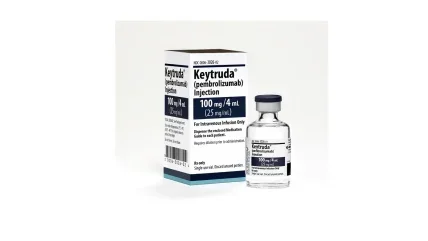
South Korean biotech ABL Bio has signed a clinical trial collaboration and supply agreement with MSD (known as Merck in the US and Canada) to assess its ABL103 with the latter’s anti-PD-1 therapy Keytruda (pembrolizumab).
The partnership will evaluate the combination in individuals with advanced or metastatic solid tumours.
As per the terms of the agreement, the Korean biotech will conduct a Phase 1b/2 clinical study to evaluate the safety and efficacy of ABL103 with Keytruda.
ABL103 is a bispecific antibody designed to simultaneously target B7-H4 and 4-1BB.
It is being developed using ABL Bio’s 4-1BB-based bispecific antibody platform, Grabody-T. The platform helps in minimising liver toxicity associated with traditional therapies and boosts antitumor activity.
ABL103 also has a mechanism to activate the 4-1BB signalling pathways in the tumour microenvironments where the B7-H4 antigens exist. This enables T cells to attack tumour cells while preserving normal cells.
Currently, the dose escalation phase of the ABL103 trial is underway in South Korea.
ABL Bio CEO Sang Hoon Lee said: “With this agreement, we are ready to move on to the next stage of ABL103 clinical development.
“We hope that the combination of ABL103 and Keytruda contributes to a better life for patients with advanced or metastatic solid tumours.
“To date, the Phase 1 study for ABL103 monotherapy is progressing smoothly, and we will do our best in clinical development to achieve meaningful results from ABL103.”
Additionally, ABL Bio is developing a range of clinical and non-clinical assets using its another bispecific antibody platform, Grabody.
The biotechnology company has over 15 clinical projects across more than seven assets, including ABL001, ABL111, ABL503, ABL105, ABL202, ABL301, and ABL103.
These projects target various indications in countries like the US, China, Australia, and Korea.
The US Food and Drug Administration (FDA) recently granted Fast Track designation to ABL001 to expedite its development.
ABL Bio is also preparing to initiate clinical trials for ABL104.
In June, the biotech’s partner, I-Mab entered into a clinical trial collaboration and supply agreement with Bristol Myers Squibb.
The partnership will evaluate ABL111 (givastomig) with Bristol Myers Squibb’s nivolumab and chemotherapy for Claudin 18.2-positive gastric and oesophageal cancer patients.
Furthermore, ABL Bio is continuing its research to develop other product candidates, including bispecific antibody-drug conjugates (ADCs).






